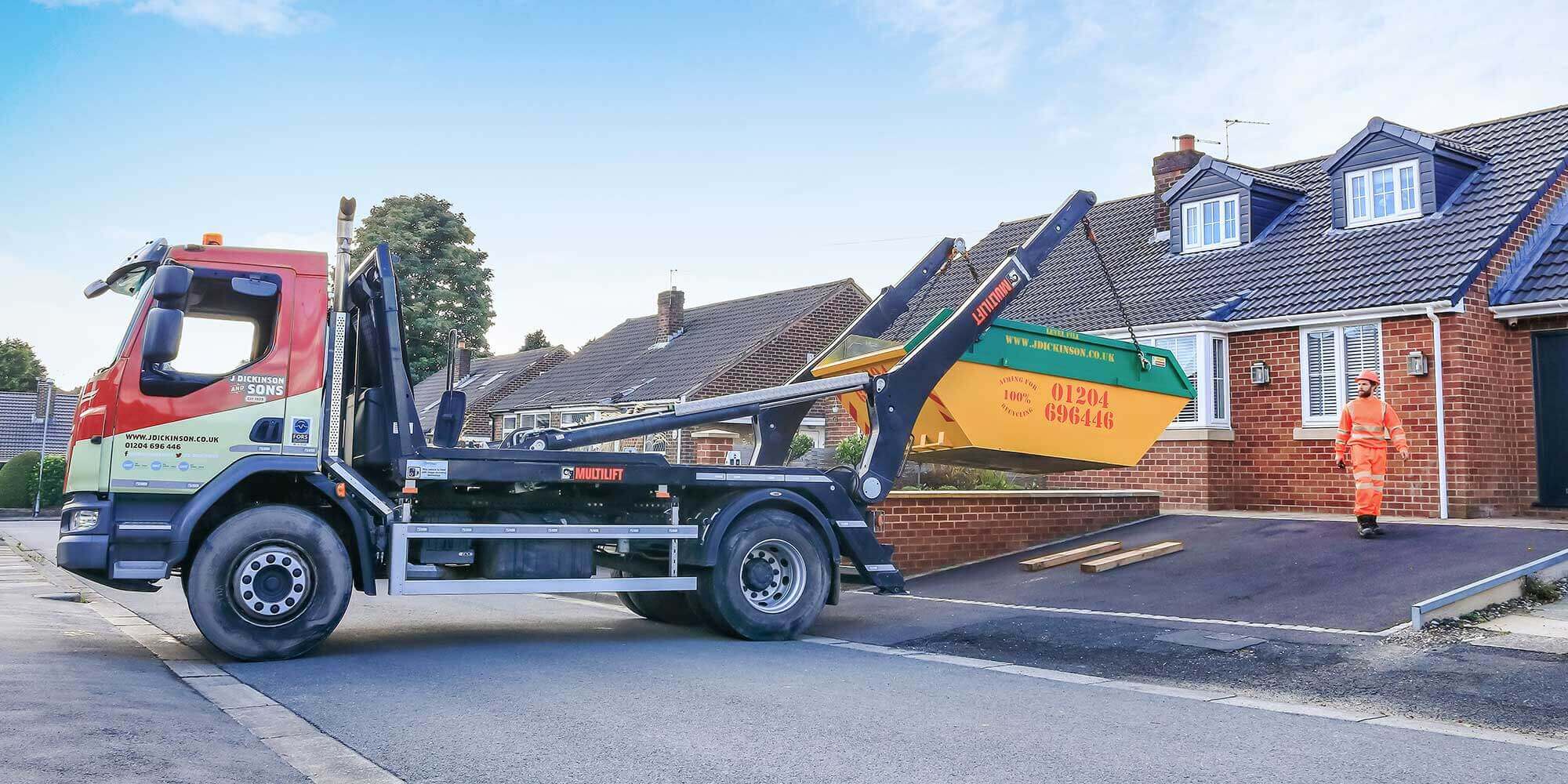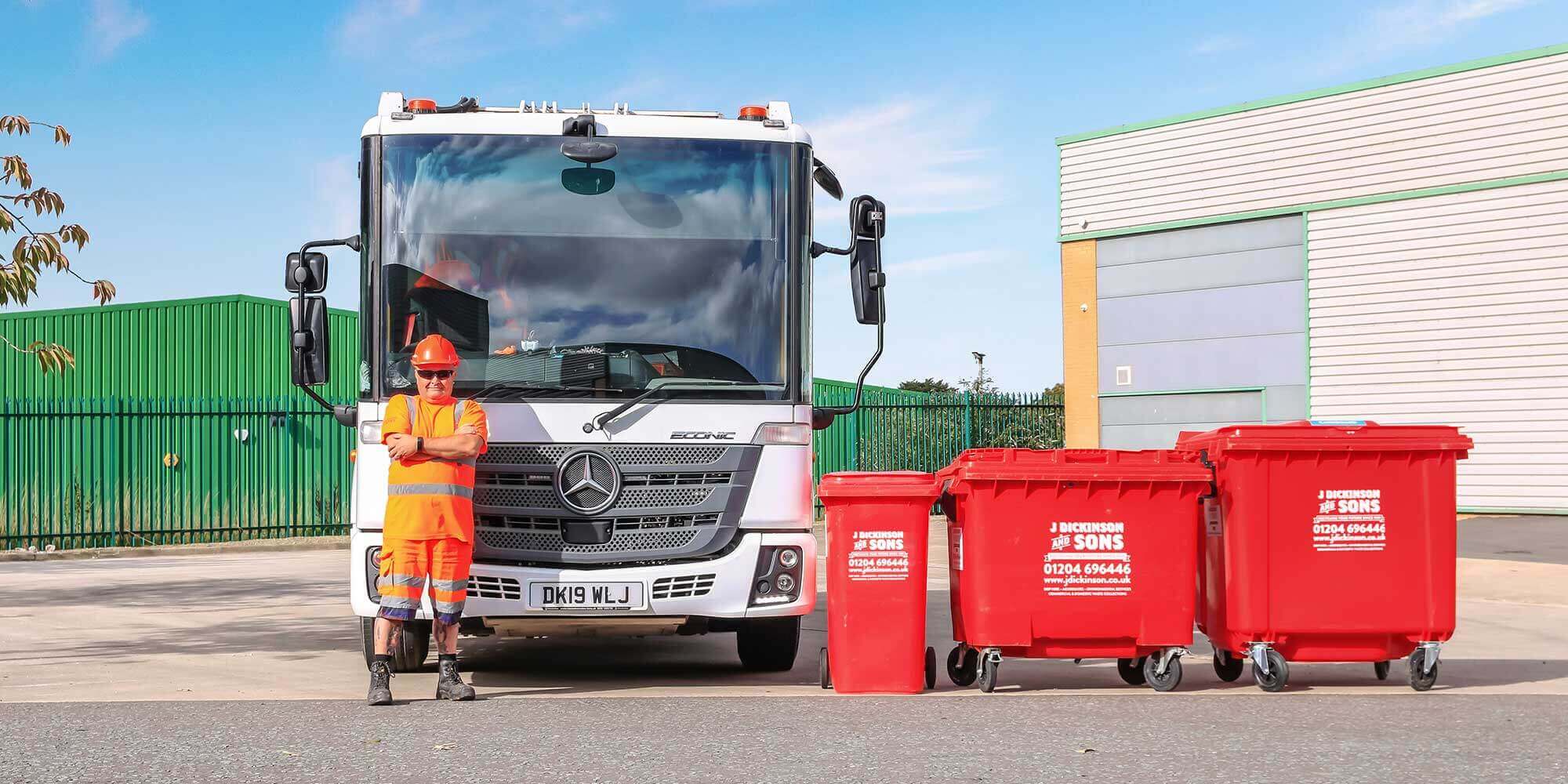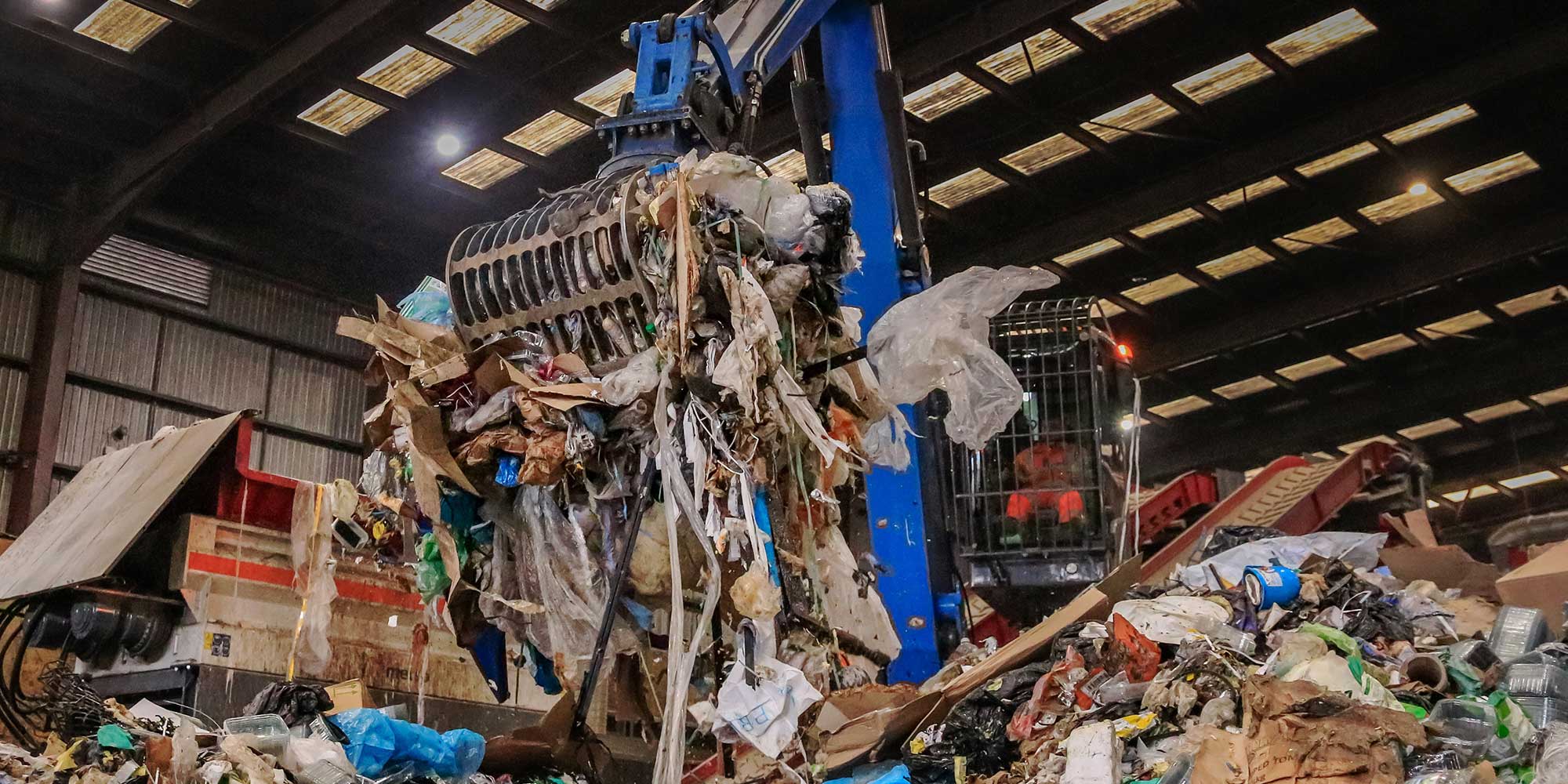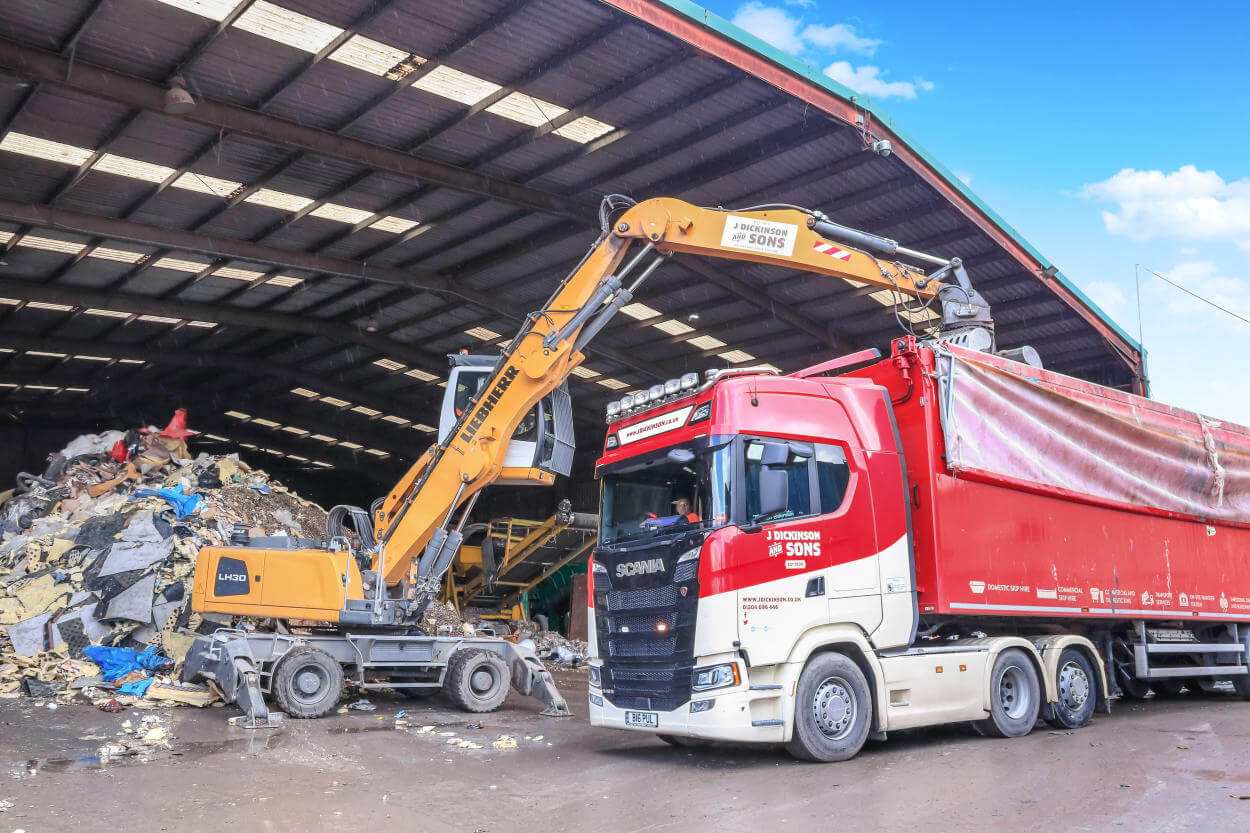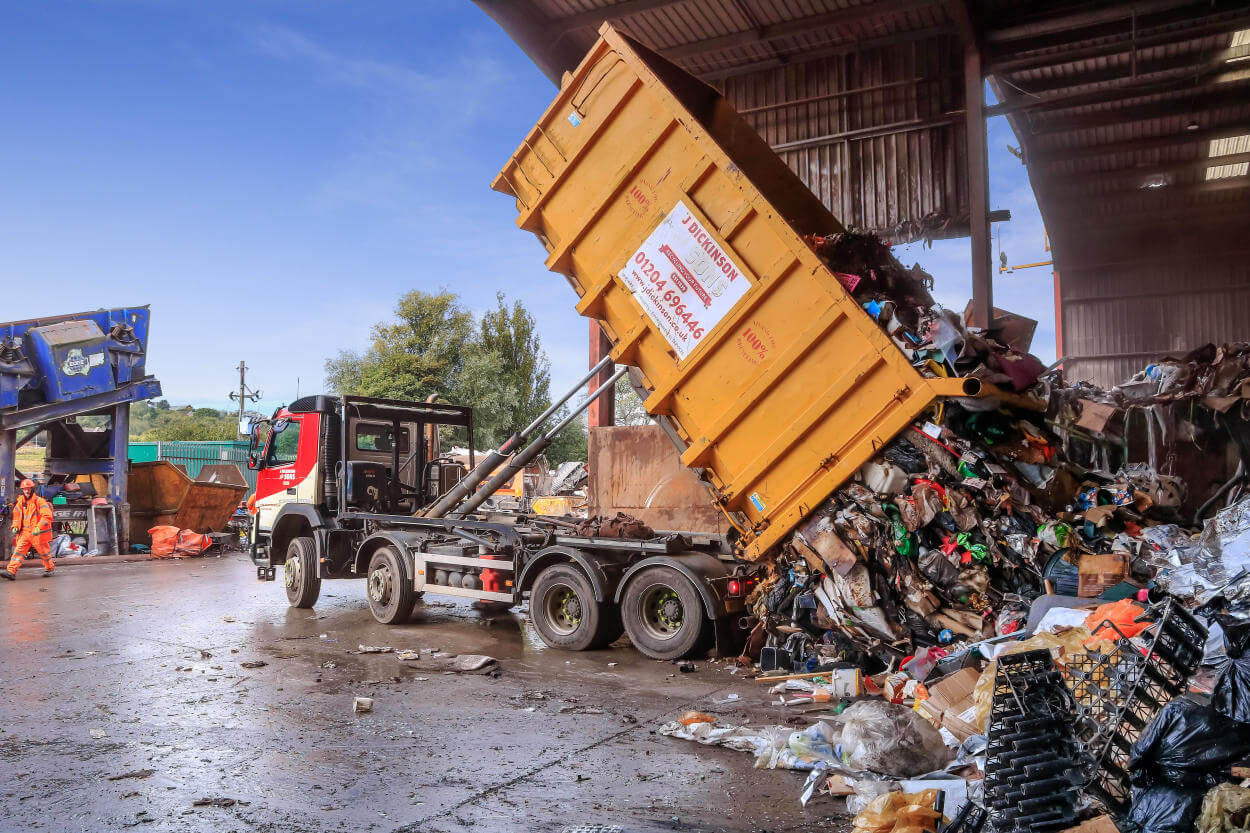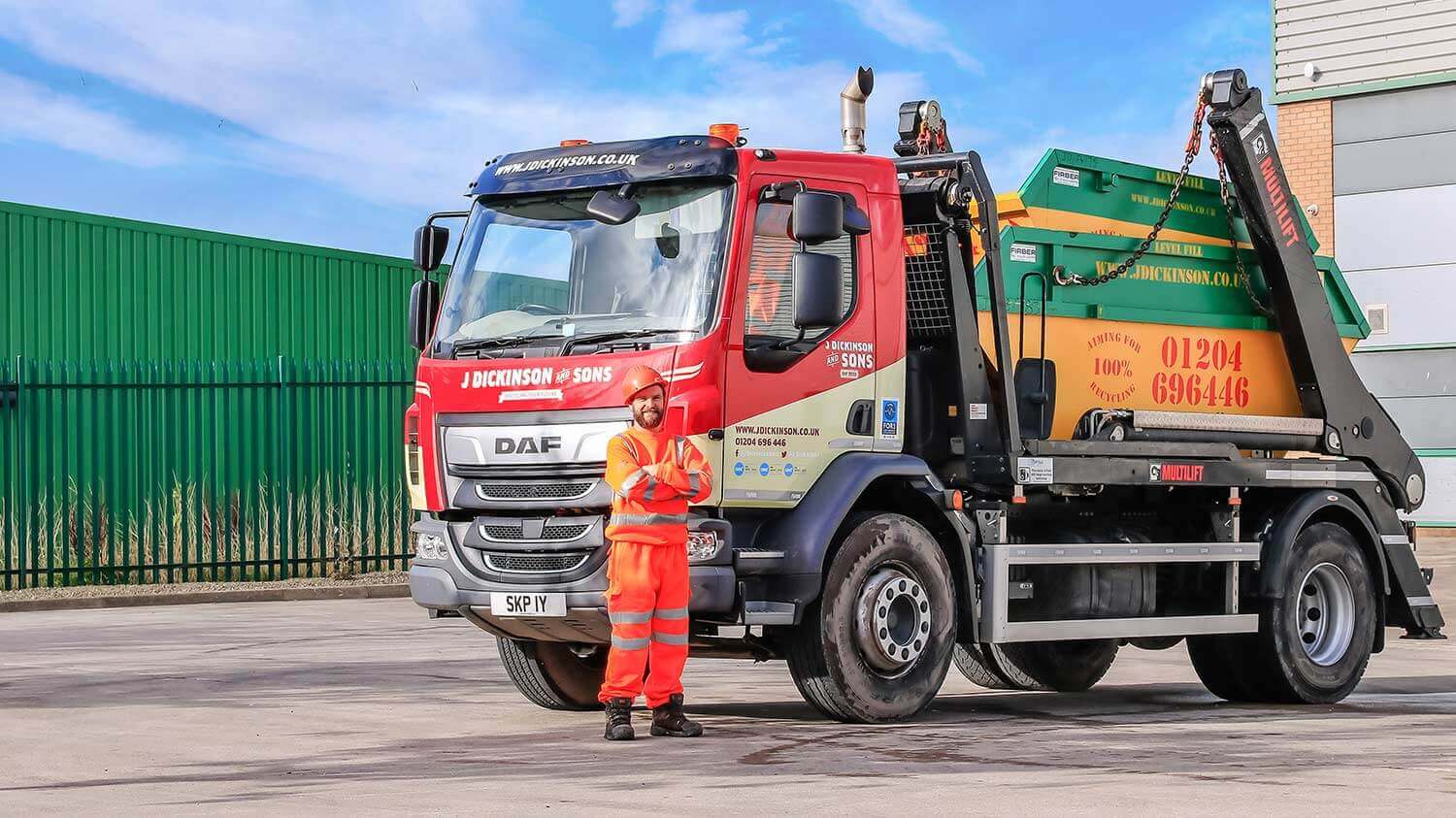
Have you ever wondered what happens to those empty drink cans you throw in the office waste bin? Or the garden waste you collected in that skip? It’s easy to throw things away and forget about them, but there’s a whole world behind this process that we call ‘waste management’.
It’s not just about bin lorries and landfills; it’s a dynamic field that combines science, technology, policy and a deep commitment to our environment. From innovative recycling techniques to the challenges of electronic waste, this blog will shed light on the intricacies of waste management and what it is.
- What is waste management?
- What exactly is waste management?
- Recycling
- Types of Waste
- Hazardous Waste
- Organic Waste
- Recyclable Materials
- Benefits of Effective Waste Management
What exactly is waste management?
Waste management is the handling, collection, transportation, monitoring, disposal, and recycling of waste materials in an environmentally responsible way.
It involves various processes aimed at reducing the environmental impact caused by waste and ensuring the health and safety of both the environment and people.
Disposal of waste is a critical part of waste management. Any waste that cannot be recycled or composted is efficiently disposed of in landfills or incinerators designed to minimize environmental pollution. Monitoring waste management practices helps companies and individuals know that their waste disposal is compliant with environmental regulations.
Recycling
Recycling is a key component of waste management as it aims to reduce the amount of waste being sent to landfills or incinerators. It involves turning waste materials into new products or materials. Through recycling, valuable resources are conserved, and energy consumption is reduced.
Poor waste management practices can lead to pollution of our air, water, and soil, which can have severe effects on ecosystems, wildlife, and human health.
On the flip side of this, proper waste management reduces pollution, conserves resources, promotes sustainability, and contributes to a healthier and cleaner environment.
Types of Waste
Solid Waste
In the context of waste disposal, there are several methods available to manage solid waste effectively.
Landfill – Solid waste is transported to designated areas and deposited in layers. The waste is then compacted and covered with soil to minimize odor, prevent contamination, and optimize the space available. Landfills release greenhouse gases and contaminate groundwater if not managed properly, because of this, J Dickinson will only ever use them as a last resort.
Incineration – Incineration involves burning solid waste at high temperatures, reducing it to ash, gas, and heat. This method can generate energy and decrease waste volume. However, incineration can release harmful emissions, such as dioxins and heavy metals, and requires appropriate air pollution control systems.
Recycling – This involves reprocessing materials, such as paper, plastic, glass, and metal, into new products. This method conserves resources, reduces energy consumption, and prevents waste accumulation.
Composting – Composting is the natural process of decomposing organic waste, such as food scraps and garden waste, into nutrient-rich compost or fertilizers. This method enriches soil, reduces the need for chemical fertilizers, and diverts waste from landfills.
To effectively manage solid waste, it is essential to prioritize waste reduction and recycling while minimizing the use of non-recyclable products and unnecessary packaging. By adopting these practices, we can mitigate environmental impacts and promote a sustainable waste management system.
Hazardous Waste
Hazardous materials refer to any type of waste material that poses a threat to human health or the environment. It can come from industrial processes, manufacturing activities, or even our own homes.
Bulk hazardous waste, including industrial chemical waste, asbestos and contaminated soil, is often sent to remote and controlled landfill sites.
Before this happens, the waste is tested to make sure this is the best way to dispose of the waste. Common examples of hazardous waste include:
- Batteries
- Inedible oils (like car oil)
- Asbestos
- Common chemicals, like printer toner and brake fluid
- Paints and solvents
- Household cleaners
Organic Waste
This is any waste material that comes from a biological source. Think of it as anything that was once alive. This can include a wide range of materials – from your kitchen leftovers to the leaves falling in your backyard.
There are many examples of organic waste. In your kitchen, it could be fruit and vegetable peels, eggshells, coffee grounds, and uneaten food. In your garden, it could be grass clippings, fallen leaves, and even old flowers.
These are all natural products, and unlike plastics or metals, they have a superpower: they can be broken down by nature.
The most common and environmentally friendly method of disposing of organic waste is composting. Composting is nature’s process of recycling decomposed organic materials into a nutrient-rich soil or fertilizer.
Recyclable Materials
Recyclable materials refer to items that can be processed and reused to create new products. They are essential in minimizing waste and conserving natural resources. Some common examples of recyclable materials include cardboard, plastics, glass, and aluminum.
Cardboard is widely used in packaging and can be easily recycled into new cardboard products. Similarly, plastics, such as bottles and containers, can be melted down and used to produce new plastic items. Glass is another recyclable material that can be remelted and reshaped into new glass products.
One of the most significant benefits of recycling these materials is waste reduction. By recycling cardboard, plastics, glass, and aluminum, we can significantly decrease the amount of waste that ends up in landfills. This reduces the environmental impact of landfills and lessens the need for new landfills to be created.
Another advantage of recycling is resource conservation. When we recycle cardboard, plastics, glass, and aluminum, we save energy and raw materials that would have been used to produce new products from scratch. This helps to conserve natural resources, such as trees, oil, and sand.
Benefits of Effective Waste Management
Effective waste management is crucial for maintaining a healthy and sustainable environment. Proper disposal, recycling, and treatment of waste have a multitude of benefits that extend beyond simply keeping our surroundings clean. These include:
- Improved health and safety for people and wildlife
- Conservation of natural resources for future generations
- Reduced environmental impact
- Reduced operating costs for businesses through streamlined waste management processes
Streamline your waste management with J Dickinson & Sons
Whether you’re renovating your kitchen or you need a cost-effective, reliable solution for your business waste collections, we’ve got you covered. With years of hand-on experience, you can count on us to provide honest, reliable advice, a 5-star customer service and competitive pricing every step of the way.
Share this
